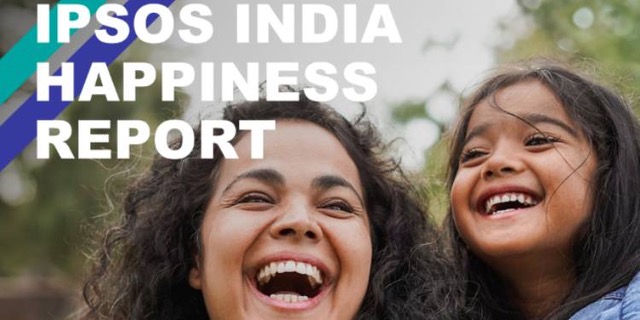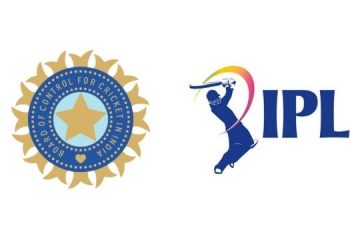Mumbai: 20 March marked UN’s International Day of Happiness with the theme of 2024 being “Reconnecting for Happiness: Building Resilient Communities.” It’s also the day when Ipsos, a global market research company releases its Ipsos India annual Happiness Report which deep dives into 12 months of a study to emerge with the true indicators of happiness for 2023.
Overall, in Circa 2023, 72% per cent Indians claimed to be happy. While the Indians are most happy with family (73%), deeper analyses reveal that personal finance and health are the top influencers of happiness. Also ‘happiness’ has a direct impact on consumption behaviour
Ipsos experts ran a regression analysis on the 12 months of happiness data and the derived analysis provided a more nuanced view about what influences happiness and what contributes to happiness. The analysis further revealed that health and personal finances were the biggest influencers to Happiness for Indians. Family, which the country is most happy about, was placed third in the pecking order of the importance hierarchy – far lower in influence as compared to health and personal finances.
The analysis also revealed, Indians have higher expectations on the financial front. So, while it was an important influencer, the current happiness score of personal finances was much lower, at 55%.
Interestingly, on the professional front, work and career was seen to play a more significant role in terms of how it affects their finances. The actual work and colleagues had lesser impact on overall happiness. Ipsos also conducts a monthly survey to capture Consumer Confidence Index among Indians. Correlating this with the data for Happiness for the year 2023, the happier Indians are, the higher is the Consumer Confidence. Both move in tandem – showing how ‘happiness’ has a direct impact on consumption behaviour.
Health is the most important factor contributing to happiness at 34%. This could encompass both physical and mental well-being. This comes out quite strongly in the Ipsos Global Trends 2023 across the countries, as well in India, ‘Conscientious Health’ and ‘Choices over Healthcare’ emerged as the highest-ranking trends. 62% of urban masses agree that they need to do more to look after themselves physically, and 56% agree they need to look after their mental well being.
Close behind Health, 32% contribution comes from Personal Financial situation – this can include income, savings, financial security, and the ability to afford necessities and luxuries. This isn’t surprising as financial
security can greatly influence an individual’s quality of life. ‘Inflation’ (48%) and ‘Unemployment’ (44%) also come out as the top concerns for Indians in Ipsos What Worries the World survey 2023 (India), underlying the emphasis Indians place on Personal Finances.
Next comes the role of Family as a contributor to happiness at 16%. This could mean our relationships with family members, having a supportive family, or the joy we derive from family interactions.
Friendships as a source of happiness contributes 8%. This indicates the importance of social connections and interpersonal relationships outside of the family.
Work accounts for 6%. This could include job satisfaction, a sense of fulfillment from career, or a positive work-life balance.
The lowest contributor is the situation of the country at 4%. This could be related to the political climate, economic stability, social issues, and general national sentiment.
Health is a bigger influencer In metros than for those in non- metros: For those living in Metros, Health is a bigger influencer than for those in non- metros. While for non- metros, Health and Personal Finances get equal importance, the gap is significantly high in Metros – Health is a much bigger influencer than Personal Finances.
An age wise analysis also reveals the shift in influence of Health in comparison to Personal Finances, with advancing years. The gap between influence of Health and Personal Finances increases for those older than 46 years. Interestingly, for men, Health and Personal Finances are equal influencers, but for women, health is clearly ahead as an influencer.
These differences reflect that while overall Health and Personal Finance are the key influencers to achieve Happiness, different parameters affect Happiness differently by lifestage, location and gender of the individual.
The analysis also shows insights on what is ‘not important’ in contributing to an individual’s happiness. Neighbours, colleagues and situation of the world, do not have a significant impact in driving happiness.
“Indians are happy in their own ‘personal bubble’. Their attention is more inward-driven, rather than the external situation of the country and the world. The report captured variations across life stage, location and gender of the individual. For instance, for men, health and personal finances were equal influencers, while for women, health was clearly ahead as a driver to be happy. For those living in metros, health was a bigger influencer than for those in non-metros. An age-wise analysis also revealed the shift in what makes individuals happy – health overtakes finances for those older than 46 years, as compared to the younger generation (where both health and personal finances were equally important),” stated Parijat Chakraborty, Group Service Line Leader, Public Affairs, Corporate Reputation, ESG & CSR, Ipsos India.

















